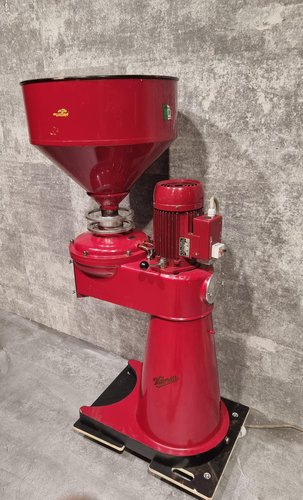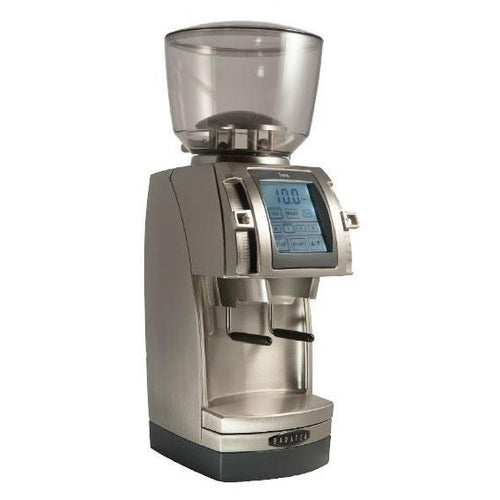How an Industrial Coffee Grinder Enhances Flavor Consistency
How an Industrial Coffee Grinder Enhances Flavor Consistency
Blog Article
Industrial Coffee Mill Guide: Boost Effectiveness and Quality
In the affordable landscape of coffee manufacturing, choosing the best commercial coffee grinder plays an essential function in enhancing both effectiveness and product high quality. Recognizing the subtleties of numerous mill kinds and essential functions-- such as personalized work settings and durable building and construction-- can dramatically influence the last taste profile of the coffee.
Comprehending Mill Types
When picking an industrial coffee grinder, understanding the numerous kinds available is important for maximizing both flavor extraction and operational effectiveness. The two main kinds of mills are blade grinders and burr mills.

Eventually, selecting the ideal sort of grinder is essential to preserving high quality and efficiency in coffee production, making it vital for organizations to purchase top quality burr mills for optimal results.
Secret Functions to Take Into Consideration
Selecting a commercial coffee mill needs cautious factor to consider of several key attributes that can substantially influence both performance and the total coffee experience. Among the key facets to evaluate is the grinding system. Burr mills are typically favored over blade grinders, as they supply a consistent work size, which is important for optimal removal and flavor.
One more vital attribute is the grinder's ability. Relying on the quantity of coffee you require to procedure, choose a model that can manage your needs without giving up speed or high quality. Additionally, think about the work settings supplied. A versatile grinder with several setups enables you to tailor the work dimension to various developing techniques, improving the coffee's taste profile.
The construction material also plays a function in longevity and upkeep. Stainless-steel components usually offer long life and are less complicated to cleanse, which is necessary for preserving health requirements. Finally, assess the mill's noise level, specifically in a hectic coffee shop or production environment, where extreme noise can be turbulent. Purchasing a mill that balances these attributes can considerably enhance both functional efficiency and the top quality of the coffee served.
Optimizing Grinding Process
To attain the ideal results in coffee preparation, maximizing the grinding process is crucial. The grind size dramatically affects removal, taste, and total quality of the brewed coffee.


Furthermore, keeping an eye on the grinding rate can maximize the procedure. Slower grinding commonly generates much less warm, protecting fragile flavors and scents. On the other hand, faster grinding may generate too much warmth, adversely affecting the coffee's top quality.
Upkeep and Treatment Tips
Correct upkeep and care of industrial coffee grinders are essential find more info for ensuring optimum efficiency you could try these out and durability. Regular cleaning is the structure of maintenance; residue buildup can influence taste and grinding effectiveness. It is recommended to clean the mill after each usage, wiping down the exterior and getting rid of any type of coffee grounds from the burrs.
Additionally, evaluate the grinding burrs for deterioration. Boring burrs can compromise work consistency, so they need to be replaced as necessary. Industrial Coffee Grinder. Periodically adjusting the mill is also important, as this maintains the preferred work dimension for different developing methods
Lubrication of relocating parts need to be performed according to the manufacturer's specifications, as this reduces rubbing and prolongs the life of the tools. It is important to utilize food-grade lubricants to make sure safety and conformity with health laws.
Finally, maintain the grinder in a completely dry and stable atmosphere to stop corrosion and corrosion. By sticking to these upkeep and care pointers, operators can improve the performance of their industrial coffee mills while guaranteeing high-grade outcome and expanded operational life.
Roi Analysis
Assessing the roi (ROI) for commercial coffee grinders is important for organizations looking for to optimize their coffee production capacities. A detailed ROI analysis assists article establish the economic feasibility of purchasing high-grade grinders, permitting organizations to weigh the initial expenses versus prospective gains.
To perform an extensive ROI evaluation, businesses ought to think about a number of essential aspects. Initially, examine the purchase price of the grinder, including installation and any kind of essential alterations to existing facilities. Next off, determine operational prices, consisting of energy consumption, upkeep costs, and labor efficiency improvements. High-performance mills usually cause decreased grinding time and increased throughput, which can considerably boost performance.
In addition, consider the impact on item quality. Industrial Coffee Grinder. Superior mills produce an even more constant work size, which can boost flavor accounts and client complete satisfaction, inevitably driving sales. By enhancing the top quality of the end product, companies can warrant higher rates, causing increased profits
Conclusion
In summary, an industrial coffee grinder plays a pivotal role in enhancing both efficiency and item quality within coffee manufacturing. Inevitably, the critical financial investment in a trustworthy mill contributes considerably to enhanced revenue and competitiveness in the coffee sector.
In the affordable landscape of coffee production, selecting the right industrial coffee mill plays a crucial duty in improving both effectiveness and product top quality. The 2 main types of mills are blade grinders and burr mills. Within the burr mill classification, there are flat burr grinders and conical burr grinders, each with its benefits. Burr mills are usually favored over blade mills, as they offer a regular work size, which is essential for optimal removal and taste.
In summary, a commercial coffee mill plays a critical duty in enhancing both efficiency and product high quality within coffee manufacturing.
Report this page